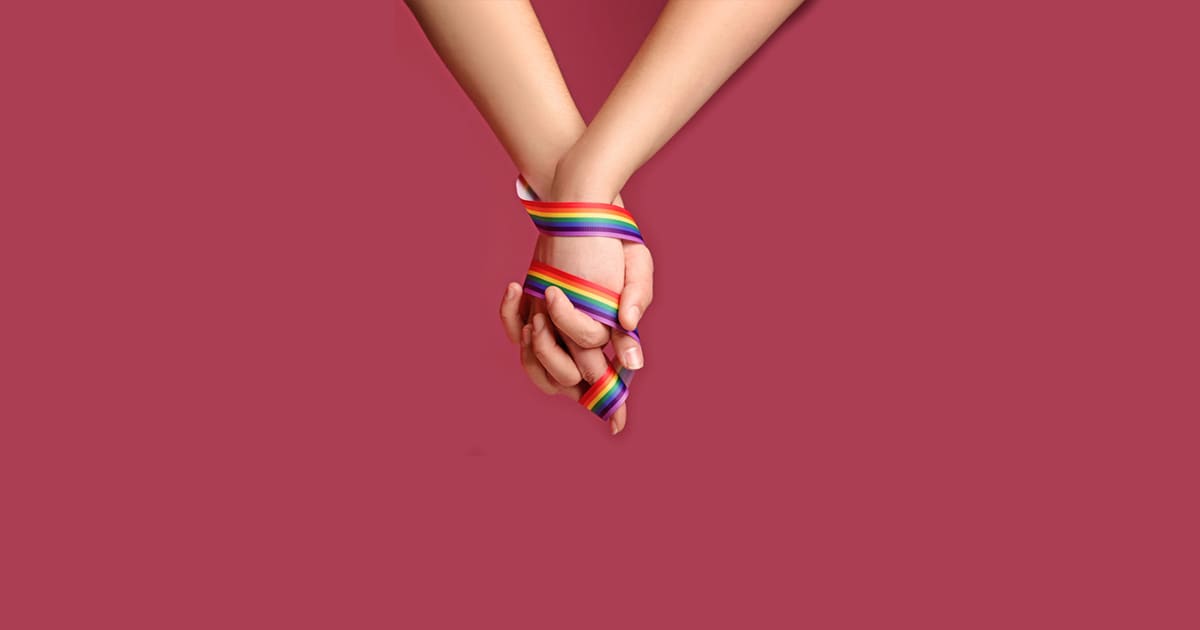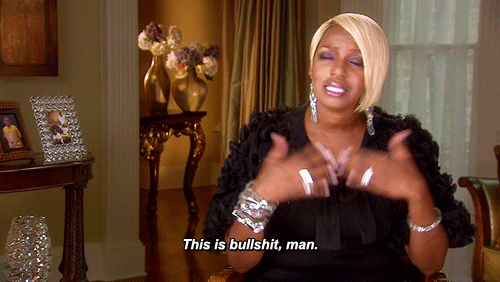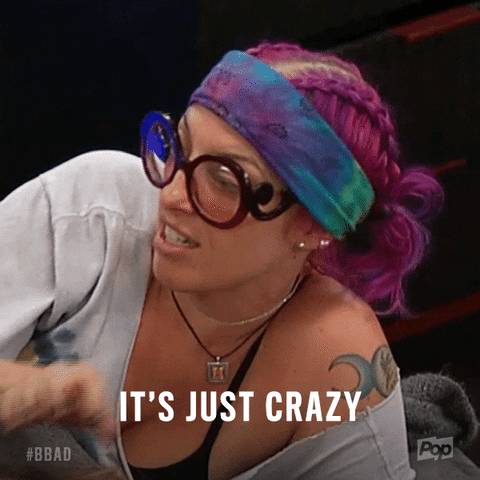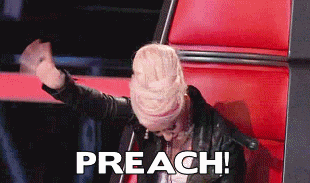Here’s why coming out is a unique struggle for bisexual women

Disclosing a sexual identity requires a lot of bravery. It puts us at risk for violence, discrimination, and rejection. And it becomes a continuous experience throughout our lives -- we have to come out every time we meet a new colleague, friend, or acquaintance, and at every new job or organization. We have to constantly fight to be seen because heterosexuality is assumed from birth.
National Coming Out Day is a way of advocating for queer liberation. It emphasizes that our existence and visibility is radical. Homophobia, transphobia, biphobia, and other forms of hate particularly flourish when our presence is a mystery. But people are more likely to support equality for LGBTQ people when someone they know is an open participant in our community.
We live in a widely binarized world
NCOD also highlights the struggle for LGBTQ people to privately realize an identity that is marginalized and oppressed. That struggle looks different for bi+ (bisexual, queer, or pansexual) people than it does for lesbian and gay individuals, but coming out narratives frequently ignore us. We learn to understand our identities in isolation, without access to the support structures that other LGBTQ people receive unquestioningly.
Only 28% of bisexual people are out to their loved ones compared to 71% of lesbians and 77% of gay men. Bisexuality doesn’t always resemble a 50/50 split between same-sex and opposite-sex attractions but the belief that it does is so prevalent, people are less likely to adopt the label. We are also held back by the confusion, doubt, rejection, and discrimination that targets us as bi+ people specifically.
Because we live in such a widely binarized world, monosexuality -- which refers to gay, lesbian, and hetero identities -- is centered. Bisexuality doesn’t fit neatly into any of those categories so it gets explained outside of sexual identity. We represent something fleeting, something that doesn’t actually exist or deserve legitimacy, despite making up half of the entire LGBTQ community.
Outsiders see us as either the midway point before someone fully embraces a homosexual identity or a temporary gap in an otherwise heterosexual life. Because I always heard that bisexuality was a phase, particularly for women, I believed that my own attractions didn’t need to be taken seriously. I consistently retreated back into the closet. I didn’t think I belonged at Pride. For years, I denied myself the support structures and community that monosexual people were seemingly more deserving of. Even now, although I feel confident in describing myself as a bisexual woman, there is still a nagging voice in my head that asks me to pick a side.

It's different for bisexual people
But the heterosexual-homosexual binary results in something far more sinister by placing us directly between two groups, rather than observing us as our own marginalized entity. We struggle against the perception that a bi+ identity is something we can opt out of or turn off. It means that although we face real violence and discrimination, it can reasonably only be half as bad as what gay and lesbian people face. It means that our needs, compared to the needs of lesbian and gay people, are less severe.
Last year, a bisexual man was denied asylum in the United States because the judge was skeptical, not only of his identity, but of the idea that his identity put him at risk. In his home country of Jamaica, where the punishment for same-sex behaviors is ten years in prison, he had already been shot, stoned, attacked with a knife, robbed at gunpoint, and disowned by his family because of his sexuality. Deporting him meant that he would either be incarcerated or returning to face life-threatening violence.
That same legal skepticism also existed in the trial against California’s “Proposition 8”, which only recognized marriage between a man and a woman. The plaintiff’s own lawyer invalidated her bisexuality, asking, “How convinced are you that you are gay? You’ve lived with a husband. You said you loved him? Some might say, well, it’s this and then it’s that and it could be this again.” The message there is that only monosexual people deserve the right to marriage.

And of course, it holds gay and lesbian people to an impossible gold-star standard. It ignores that because heterosexuality is assumed and enforced, even people who don’t have opposite-sex attractions still engage in those behaviors. And it teaches us that simply for engaging in same-sex and opposite-sex behaviors, we are less deserving of advocacy -- which makes us less likely to be open about it.
Many people don't "buy" the bi
Bi+ people are often described as dirty, greedy, sexually indiscriminate, and opportunistic because we have a wider pool to select from. Of course, we are rarely seen as desirable partners -- with the exception of bisexual women, who are objectified for their same-sex attractions. That objectification transforms our identity into a cry for attention. It becomes something men can claim and use. Unsurprisingly, the CDC reported that bi+ women are more vulnerable to sexual violence and intimate partner violence than lesbian and heterosexual women. We also receive less positive social reactions for coming forward and as an additional barrier to justice, are three times more likely to experience police violence. When we come out, we are simultaneously asking to be violated, at fault for our harm, and in danger from the very people tasked with our protection.
Coming out is liberating AF
In that context, it almost seems easier to remain closeted. I even felt that way for most of my life. But there had always been this fog over my life that started to clear when I began the process of coming out. I had always doubted my identity, even after I slept with women. I scolded myself the way others did. I was defensive. I was constantly monitoring my language, trying to prove a hetero identity that wasn’t being questioned. Now that I’m out, I don’t feel like I have to run my words and behaviors through a filter. I am finally at peace.
Studies even show that coming out fosters deeper connections with our loved ones and better quality relationships overall. I guess I’d always thought that it would mean the opposite. Instead, I found way more supporters than haters. And when I did run into someone’s bigoted opinion, it was so much easier to brush them off once I was proud of my identity. Being out allows bi+ people to better advocate for ourselves against homophobia and biphobia. And according to a study conducted at the University of Missouri-Kansas City, bi+ people are more likely to be proud of their own identity when they know someone else who already is. By coming out, you make it easier for others to live authentically too.
If you are a bisexual person who needs help coming out, the Human Rights Campaign has a guide that is incredibly helpful. And for our monosexual allies, remember that being bi+ is a unique struggle. Our stories aren’t often represented on days like this. But we, just as much as anyone else, deserve visibility. Shine a little light on us.





